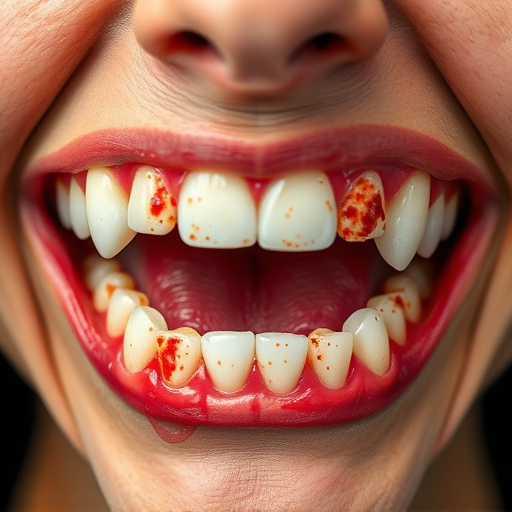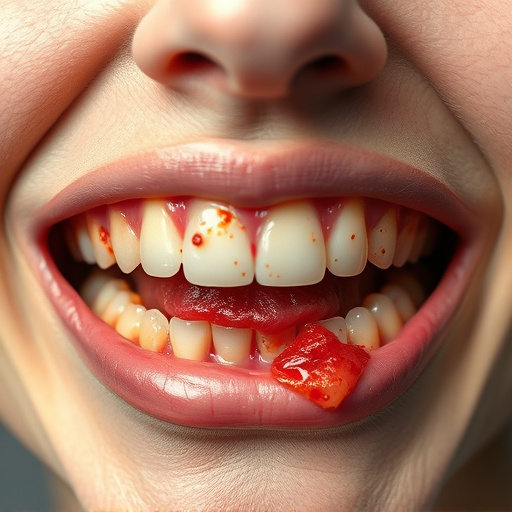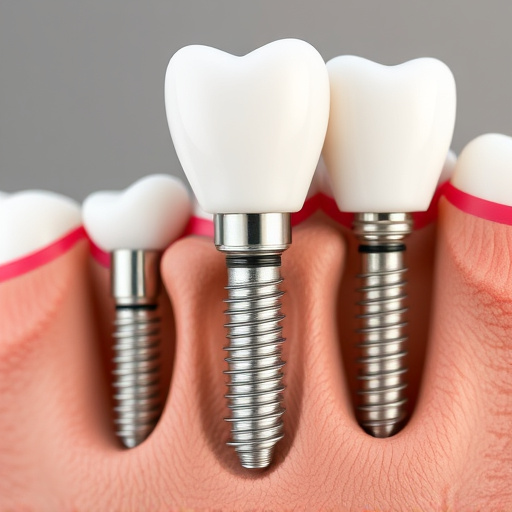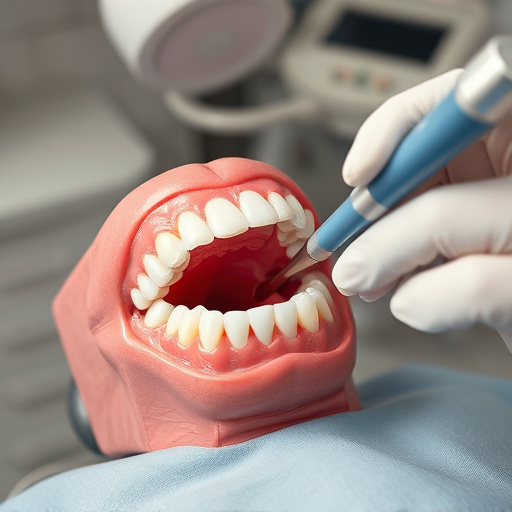Periodontal disease, driven by plaque and bacteria, causes gum inflammation and can progress to periodontitis, damaging tissues and bones. Early intervention through periodontal therapy treatment, alongside dental care, is vital. This includes monitoring during routine procedures. Regular check-ups, proper hygiene, and deep scaling prevent severe complications like bone loss and tooth mobility. Advanced treatments restore teeth and gums, focusing on long-term wellness.
Periodontal therapy treatment is a vital step in maintaining optimal oral health. This comprehensive guide explores why addressing periodontal disease, often referred to as gum disease, is crucial. We delve into the causes, from bacterial infections to lifestyle factors, and discuss its far-reaching effects on overall well-being. Additionally, we highlight the benefits of early intervention and preventive measures, as well as advanced treatment options that can significantly improve oral health outcomes.
- Understanding Periodontal Disease: Causes and Effects
- Benefits of Early Intervention and Prevention
- Advanced Treatments and Their Impact on Oral Health
Understanding Periodontal Disease: Causes and Effects

Periodontal disease, often referred to as gum disease, is a silent yet significant oral health issue affecting millions worldwide. It begins with inflammation of the gums due to the buildup of plaque and bacteria along the gumline. If left untreated, this inflammation can progress to periodontitis, where the infection spreads below the gum line, damaging the soft tissue and bone structures that support teeth.
The causes are multifaceted, including poor oral hygiene, certain medications, tobacco use, and even systemic conditions like diabetes. As the disease advances, it can lead to severe consequences such as tooth loss, damaged jawbone, and even systemic health issues, highlighting the importance of early intervention through periodontal therapy treatment in conjunction with comprehensive dental care. Even procedures like wisdom tooth removal or clear aligners require close monitoring for any signs of gum disease.
Benefits of Early Intervention and Prevention

Early intervention and prevention are key aspects of periodontal therapy treatment, offering numerous benefits for overall oral health. By addressing gum disease in its early stages, patients can avoid severe complications that may arise if left untreated. Periodontal therapy focuses on not just cleaning the teeth but also targeting the gums and supporting structures, ensuring a healthier mouth. This proactive approach prevents the progression from gingivitis to periodontitis, where bone loss and tooth mobility become significant issues.
Regular dental check-ups, including routine oral exams and professional cleanings, play a vital role in this process. These visits enable dentists to detect early signs of gum disease, such as inflammation and bleeding gums. Additionally, they can provide essential guidance on proper brushing and flossing techniques, which are fundamental for maintaining good oral hygiene. Early detection and prevention not only save time and money but also ensure that patients keep their natural teeth, including the possibility of avoiding more invasive procedures like dental implants and reducing the need for frequent dental fillings.
Advanced Treatments and Their Impact on Oral Health

Periodontal therapy treatment goes beyond basic cleaning. It involves advanced procedures tailored to address severe gum disease, a common yet often overlooked aspect of oral health. These treatments aren’t just about aesthetics; they target the roots of your teeth and gums to prevent further damage and promote long-term wellness.
One such intervention could be deep scaling and root planing, where dental professionals meticulously remove plaque and tartar buildup from deep pockets between teeth and gums. This process not only eases discomfort but also allows for the regrowth of healthy gum tissue. In some cases, emergency dental care may be required to address complications like abscesses or severe bleeding. Moreover, advanced treatments might include surgical procedures for complex cases or placement of dental fillings, crowns, or implants to restore and strengthen teeth compromised by periodontal disease.
Periodontal therapy treatment is a vital step in maintaining optimal oral health, as highlighted by this discussion. By understanding the causes and effects of periodontal disease, we recognize the importance of early intervention and prevention strategies. Advanced treatments have proven to significantly enhance overall oral care, making it an essential component of any comprehensive dental routine. Embracing periodontal therapy not only preserves smile aesthetics but also contributes to overall well-being.














